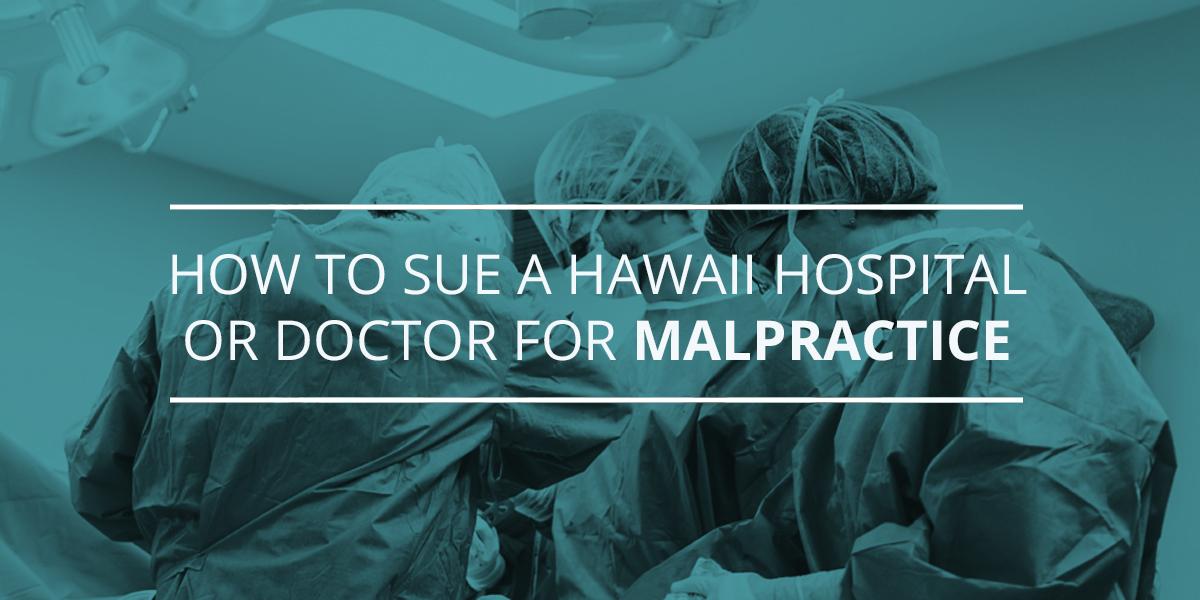
You trusted the doctor and nurses to take care of you. Whether you needed emergency care or went in for a planned procedure, you expect to come out the other side better than before. But all it takes is one moment for a health care provider to be careless, and you suffer the consequences. If you believe a doctor, nurse, or the hospital is responsible for your condition getting worse or for causing a new injury, talk with an experienced Maui medical malpractice attorney from Menzer Law. Sometimes, it can be hard to differentiate between an unfortunate accident or complication and medical negligence. Matt Menzer can review your case and figure out whether you have a valid medical negligence case.
Consult a Lawyer About Medical Negligence
It’s always important to talk with an experienced medical malpractice lawyer before pursuing a claim against a doctor or hospital. Under Hawaii’s medical torts law, you can’t immediately file a lawsuit in court. There’s an administrative process you have to follow when you have a valid claim. An attorney who specializes in medical malpractice law can review your medical records and other evidence to offer a professional opinion about whether you were the victim of medical negligence. They also retain the necessary medical experts who can give their opinions on whether your medical provider violated their standard of care or failed to get your informed consent. This expert also serves to give you needed evidence for the next step.
File a Complaint with the Medical Inquiry and Conciliation Panel
In Hawaii, you begin the medical malpractice claim process with the Medical Inquiry and Conciliation Panel (MICP). Your lawyer will draft the complaint to the MICP, which will then set a hearing date. The purpose of this stage is to go through a non-adversarial hearing process and possibly resolve the claim without going to court. Along with your complaint to the panel, you need to file a Certificate of Consultation. This is a document that says you’ve consulted with at least one licensed doctor who practices in the same medical specialty as the medical professional you’re accusing of negligence. However, this certificate isn’t necessary if your claim is based on the doctor failing to get informed consent. A panel hearing isn’t like a trial. It’s a less formal and non-adversarial process. The point is to informally exchange information through medical and hospital records, expert testimony, your testimony, the doctor’s testimony, and possibly more.
You Can Skip the MICP
Hawaii law lets you avoid the MICP process, but only if you and the other parties agree in writing to go through an alternative dispute resolution process. ADR would be either mediation or arbitration. Mediation is a non-binding process, while arbitration is usually a binding outcome decided by a third party.
Pursue a Pre-Litigation Settlement
It’s possible to resolve your medical negligence without ever going to court through the panel process or ADR method. You can negotiate a settlement with the doctor and hospital’s insurance providers.
File a Lawsuit
The MICP and negotiation process might not lead to a settlement of your claim. The next step is to file a lawsuit. To do this, you’ll first have to determine which court has proper jurisdiction and venue, which is likely in the county where medical malpractice took place. Your lawyer will write and file the Complaint and then make sure the doctor and hospital are served the papers properly. Service of process is a critical step in litigation. After the defendants have been served, they have a certain amount of time to answer the allegations in the Complaint
Go Through Discovery
The most significant and lengthy portion of litigation is the discovery process. You and the defendants (doctors, nurses, or hospitals) will have exchanged some information during the MICP panel process, already. But court-sanctioned discovery gives your team more tools to demand information from the defendants. These tools include written questions, called “interrogatories”, written requests for relevant documents, and requests for admissions. Discovery also includes the opportunity to ask witnesses (including the parties) questions under oath to find out what they know and what testimony they will likely provide at trial. These interviews under oath are called “depositions.”
Settle or Prepare for Trial
After months of discovery, you should be in a position to try to negotiate a settlement. Even though you’ve filed a lawsuit, you can still try mediation to resolve your claim. Many medical malpractice cases are resolved in mediation without going to trial. If once again, you can’t reach an agreeable settlement, your lawyer will prepare for trial. Matt Menzer has over 30 years of experience handling personal injury, wrongful death, and medical negligence cases. He knows that sometimes, the only way to fight for the compensation you truly deserve is to go to trial and have the jury decide the case.
Do You Have Questions About Filing a Medical Malpractice Claim in Hawaii?
If you think you have a medical malpractice case, don’t hesitate to talk with an experienced Maui medical malpractice lawyer. Menzer Law is located in Wailuku, Maui, and handles cases on all the neighbor islands. Matt Menzer also offers free initial consultations—there is no fee or obligation to retain the firm. He also accepts cases on a contingency fee basis, which means you pay nothing upfront. You only owe the law firm fees after we win you compensation. Call (808) 400-3726 or submit your information through the online form to set up your consultation right away.

